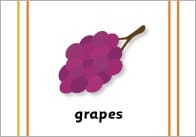The importance of Children’s Book Week (part 2)
Boundaries are put in place to protect children because they are loved. Children feel safer when they are restricted and disciplined and so without boundaries these children and young adults naturally feel that nobody cares enough and so they must be worthless, they do not have the sophistication to understand that the problem is not that simple, of course they are loved but if adults don’t convey this to them in some way, how are they to know?
Families are no longer close, not just geographically but often just too busy to stay in touch. Gone are the good old days when you knew your neighbours and they knew you. Gone are the times when they looked out for you and would tell your folks if you got up to no good and sadly although children never knew why and didn’t always appreciate it, they did know that is was how it was meant to be, everyone looking out for each other. It’s gone and there has been nothing to replace that.
Even now many parents are too busy to really talk to their offspring and often too tired to cope with even the slightest confrontation so will just give in. It’s a lot easier to say yes than it is to say no and then have to deal with the backlash and often a feeling of guilt (for not being there all day) will result in the parent wanting to please rather than parent. So the children have few, or worse still no boundaries
It’s too easy to blame the parents, they are not the ones at fault although it may seem like I have just said so.
Fault if it is to be called that, lies in many directions starting with the global rise in technology and all its’ wonders. It is an incredible cyber world we live in now and for many reasons and in many ways it is fantastic but have we paid too high a price for this global phenomenon? Have we lost the ability to communicate?
Fault also lies with the drastic change in our human behaviours, the parents of our young people today are the children of the parents who were around at the start of the technology boom and were the children of the parents who were around in the sixties when anything went and we thought we could have it all. We started watching television and stopped talking. We started to want more out of life and were prepared to work for it but who would mind our children? We forgot how to be parents. This desperate need to be somebody and have our 15 minutes of fame, stems from never being given that as a child, and not having been drawn into that favoured circle to share the news about the days’ events. Not being made to feel valued.
You may feel that I have either over dramatised the case for telling stories here or in fact over simplified it depending on your point of view and I welcome any feedback on this as it is a very real issue in today’s world and one which I am called to speak about regularly. Storytelling in all formats is vital for the development of all children and the pleasure of reading a story to a child should not be underestimated. Of course not every child is deprived of stories, there are still many families where storytelling at bed time is a familiar nightly ritual and there are some teachers who are determined to tell stories to their pupils despite the difficulties in finding time within the curriculum because these teachers know the added value of storytelling in the class. Teachers often tell me that they know which children in their class have been read to or told stories, and sadly nowadays there are so few, and the teacher can tell simply because the signs are there and they are so obvious. The child is a better listener, has increased vocabulary, better understanding and is more creative. It definitely gives a child a better start in life.
Whether the story is true or false, whether real or imagined just to share that moment with the child will have such a lasting impact that will stay with them throughout their life so it has to be worth doing even if it sometimes feels like a chore at the time. You will never regret it and they will never forget it!
Children’s Book Week – Will you take it seriously?
Rona Barbour – The Storyteller September 2011
Her mantra
“We must make people understand the power of, and the need for Storytelling especially to our young people, and our children. It is their heritage and their right, it let’s them begin to understand the world around them and where they fit in”!
Rona Barbour works as a storyteller visiting schools and institutions all of the UK and abroad. She is also the ‘Storyteller In Residence’ for Education in Action Zone, Liverpool. You can get in touch with her by email [email protected] or via her website www.Thestoryteller.co.uk.
Popular Teaching Resources
Stay Up To Date
Sign up for our newsletter and we’ll let you know when we create new early years resources.





